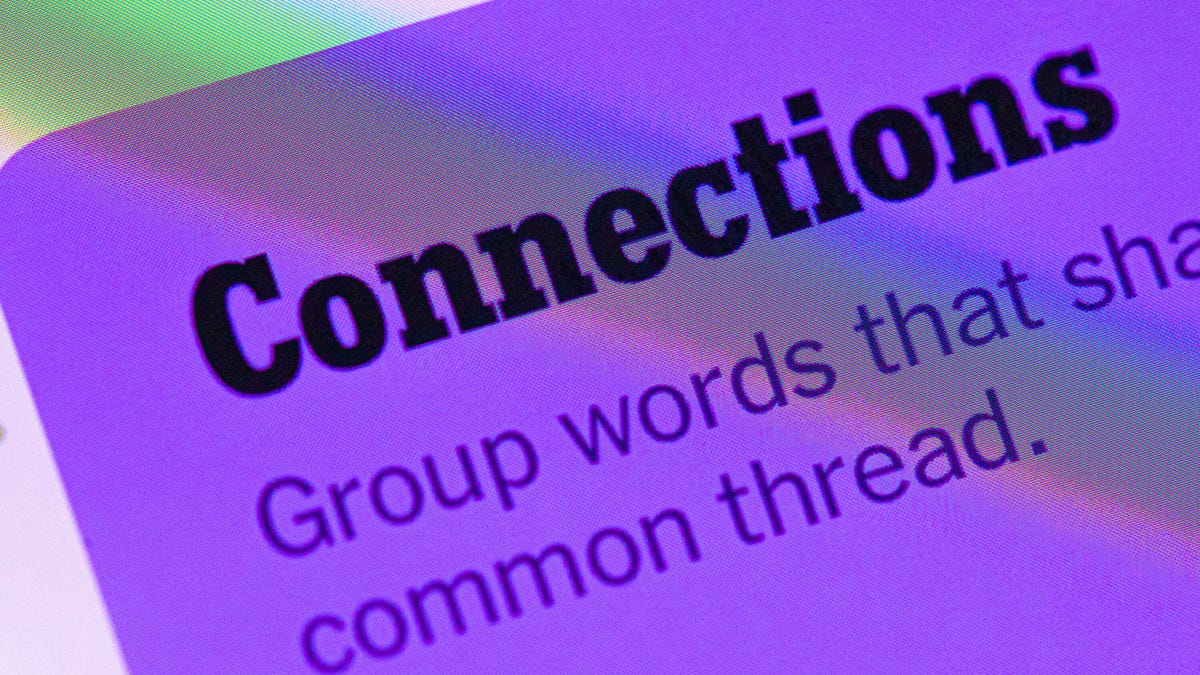Technologies
What De-Extinction Means for the Living World
With much controversy swirling around Colossal’s proxy dire wolves, we spoke with the company’s CEO to find out how these animals were created and what so-called de-extinction technology could mean for endangered species.
Some people will tell you that the dire wolves are back, while others will tell you they are not. Colossal Biosciences kicked off an avalanche of media coverage, including both hype and harsh criticism, when the company said it brought back dire wolves, an extinct species given renewed popularity by its role in the Game of Thrones franchise, using gene-editing and cloning technology.
We will discuss the details of what Colossal has accomplished, but this technology also raises a bigger question with wider-reaching implications: What does de-extinction mean for the living world and endangered species fighting for survival?
Proxy dire wolves
Three animals — two males named Romulus and Remus and a female named Khaleesi — are at the center of the controversy.
Colossal created the wolf pups by taking DNA from an existing species, the gray wolf, and making 20 edits to 14 genes designed to produce traits associated with the dire wolf: size, the color of their coats and more. The embryos were implanted into large dogs and reportedly delivered by a planned cesarean section.
Much of the debate around this issue has centered on whether gene-edited gray wolves can be accurately called «dire wolves» and if their creation can truly be considered «de-extinction.»
«It’s never gonna be possible to bring something back that’s genetically identical to a species that used to be around, and also a species is more than just its DNA,» said Beth Shapiro, Colossal’s chief science officer. «It’s the DNA interacting with the ecosystem, which also isn’t present.»
The International Union for the Conservation of Nature defines de-extinction as «the process of creating an organism that resembles an extinct species,» with the critical caveat that the term itself is misleading. Thinking of de-extinct versions of animals as a proxy for the original animals, rather than a faithful reproduction, adds some clarity to the conversation.
How Colossal’s de-extinction works
To understand how it works, look at the first gene-edited species Colossal announced: woolly mice. This demonstrates the company’s ability to make several gene edits at once.
«It’s the same genes that evolved in elephants and evolved in mice, but it was variants in those genes we know are compatible with a healthy mouse,» Shapiro said.
Colossal has produced about 38 woolly mice, and more are on the way. The mice are also reproducing.
Colossal seeks to answer some of the questions with its wooly mice include whether the edits will affect the mice’s ability to thrive in colder climates and the long-term effects of CRISPR gene editing at multiple sites in the animal’s genome.
Animal welfare
Colossal says it prioritizes the creation of healthy animals over things like editing the maximum number of genes or adding in genes exactly as they existed in extinct species. «Every edit carries some risk,» Shapiro said. «We did AI modeling of 3D protein folding, turning genes up and down slightly rather than changing them in some dramatic way.»
Even with precautions, Shapiro acknowledged things don’t always go according to plan. Khaleesi, Colossal’s female proxy dire wolf, had a sister who died at about day 10 due to an infection. «It was confirmed not to be a result of our editing,» Shapiro said.
Endangered species
Along with the proxy dire wolves, Colossal says it has cloned four endangered red wolves. The US Fish & Wildlife Service has estimated that fewer than 20 red wolves are left in the wild and about 270 are in captivity.
Colossal’s red wolf clones were made using genes from what the company is calling «ghost wolves,» a population of what were believed to be coyotes living in western Louisiana and eastern Texas that were revealed to have a significant portion of red wolf DNA.
Colossal CEO Ben Lamm says the clones «increased genetic diversity of the captive breeding pool by up to 25%.»
Lamm also highlighted the company’s pledge to make much of its de-extinction technologies available for free, including genetic rescue (adding genetic diversity to small at-risk populations), biobanking (preservation of biological samples) and cryo-freezing (cold storage of biological samples).
What’s next?
Questions and concerns still loom, many of which have been laid out by the IUCN, the same organization that provided Colossal’s working definition of de-extinction and acknowledged it as misleading.
Among the potential disadvantages to de-extinction raised by the IUCN is a possible decrease in support for preventing extinctions. If the public misbelieves that extinction is reversible due to the popularity of de-extinction in the news, could that promote apathy about ongoing conservation efforts?
Risk to animals, including those created by gene-editing and cloning, surrogate animals and any potential future offspring or hybrid species (even re-extinction), is also a concern.
Then there are the challenges of potential rewilding, its effects on the ecosystem, the potential for invasiveness of proxy species in their new environment and the risk of disease.
This brings us back to where we began, with the trio of proxy dire wolves who will live out their lives on a 2,000-acre preserve in an undisclosed location.
Check out the video in this article to see Colossal’s proxy dire wolves in action and hear our interviews with the company’s CEO and chief science officer.
Technologies
Today’s NYT Mini Crossword Answers for Friday, Dec. 26
Here are the answers for The New York Times Mini Crossword for Dec. 26.

Looking for the most recent Mini Crossword answer? Click here for today’s Mini Crossword hints, as well as our daily answers and hints for The New York Times Wordle, Strands, Connections and Connections: Sports Edition puzzles.
Need some help with today’s Mini Crossword? Some of the clues are tough today — I thought maybe 1-Across was referring to the Grinch, or even Oscar the Grouch, but was I ever wrong! Read on for all the answers. And if you could use some hints and guidance for daily solving, check out our Mini Crossword tips.
If you’re looking for today’s Wordle, Connections, Connections: Sports Edition and Strands answers, you can visit CNET’s NYT puzzle hints page.
Read more: Tips and Tricks for Solving The New York Times Mini Crossword
Let’s get to those Mini Crossword clues and answers.
Mini across clues and answers
1A clue: Furry and green, say
Answer: MOSSY
6A clue: State known for its potatoes
Answer: IDAHO
7A clue: Like a faithful friend
Answer: LOYAL
8A clue: Had a beverage
Answer: DRANK
9A clue: Pronoun frequently paired with «her»
Answer: SHE
Mini down clues and answers
1D clue: Not spicy, as salsa
Answer: MILD
2D clue: Reasons for wrinkled noses
Answer: ODORS
3D clue: Words from a doctor checking your tonsils
Answer: SAYAH
4D clue: Comedian Gillis
Answer: SHANE
5D clue: Part of an egg used to make hollandaise sauce
Answer: YOLK
Don’t miss any of our unbiased tech content and lab-based reviews. Add CNET as a preferred Google source.
Technologies
Today’s NYT Connections: Sports Edition Hints and Answers for Dec. 26, #459
Here are hints and the answers for the NYT Connections: Sports Edition puzzle for Dec. 26, No. 459.

Looking for the most recent regular Connections answers? Click here for today’s Connections hints, as well as our daily answers and hints for The New York Times Mini Crossword, Wordle and Strands puzzles.
Today’s Connections: Sports Edition is a tough one. That purple category once again has players looking for a different, but related, hidden word in four of the clues. If you’re struggling with today’s puzzle but still want to solve it, read on for hints and the answers.
Connections: Sports Edition is published by The Athletic, the subscription-based sports journalism site owned by The Times. It doesn’t appear in the NYT Games app, but it does in The Athletic’s own app. Or you can play it for free online.
Read more: NYT Connections: Sports Edition Puzzle Comes Out of Beta
Hints for today’s Connections: Sports Edition groups
Here are four hints for the groupings in today’s Connections: Sports Edition puzzle, ranked from the easiest yellow group to the tough (and sometimes bizarre) purple group.
Yellow group hint: Big Apple jock.
Green group hint: College football fun.
Blue group hint: On the road.
Purple group hint: Hunt down a word in other words.
Answers for today’s Connections: Sports Edition groups
Yellow group: A New York athlete.
Green group: Bowl games.
Blue group: Associated with a team road trip.
Purple group: Ends in a movement verb.
Read more: Wordle Cheat Sheet: Here Are the Most Popular Letters Used in English Words
What are today’s Connections: Sports Edition answers?
The yellow words in today’s Connections
The theme is a New York athlete. The four answers are Islander, Net, Ranger and Yankee.
The green words in today’s Connections
The theme is bowl games. The four answers are Alamo, Gator, Liberty and Pinstripe.
The blue words in today’s Connections
The theme is associated with a team road trip. The four answers are bus, flight, hotel and visiting locker room.
The purple words in today’s Connections
The theme is ends in a movement verb. The four answers are foxtrot (trot), newsprint (sprint), terrace (race) and thunderbolt (bolt).
Don’t miss any of our unbiased tech content and lab-based reviews. Add CNET as a preferred Google source.
Technologies
Today’s NYT Connections Hints, Answers and Help for Dec. 26, #929
Here are some hints and the answers for the NYT Connections puzzle for Dec. 26 #929

Looking for the most recent Connections answers? Click here for today’s Connections hints, as well as our daily answers and hints for The New York Times Mini Crossword, Wordle, Connections: Sports Edition and Strands puzzles.
Today’s NYT Connections puzzle is full of fun pop-culture references. Read on for clues and today’s Connections answers.
The Times has a Connections Bot, like the one for Wordle. Go there after you play to receive a numeric score and to have the program analyze your answers. Players who are registered with the Times Games section can now nerd out by following their progress, including the number of puzzles completed, win rate, number of times they nabbed a perfect score and their win streak.
Read more: Hints, Tips and Strategies to Help You Win at NYT Connections Every Time
Hints for today’s Connections groups
Here are four hints for the groupings in today’s Connections puzzle, ranked from the easiest yellow group to the tough (and sometimes bizarre) purple group.
Yellow group hint: Golden state cliches.
Green group hint: Funny films.
Blue group hint: Rock on.
Purple group hint: Not white.
Answers for today’s Connections groups
Yellow group: California-based character tropes.
Green group: Comedy subgenres.
Blue group: ’70s rock bands.
Purple group: Black ____.
Read more: Wordle Cheat Sheet: Here Are the Most Popular Letters Used in English Words
What are today’s Connections answers?
The yellow words in today’s Connections
The theme is California-based character tropes. The four answers are movie exec, surfer, tech bro and Valley Girl.
The green words in today’s Connections
The theme is comedy subgenres. The four answers are buddy, cringe, screwball and stoner.
The blue words in today’s Connections
The theme is ’70s rock bands. The four answers are America, Chicago, Foreigner and Journey.
The purple words in today’s Connections
The theme is black ____. The four answers are Forest, Friday, Panther and Widow.
Don’t miss any of our unbiased tech content and lab-based reviews. Add CNET as a preferred Google source.
-

 Technologies3 года ago
Technologies3 года agoTech Companies Need to Be Held Accountable for Security, Experts Say
-

 Technologies3 года ago
Technologies3 года agoBest Handheld Game Console in 2023
-

 Technologies3 года ago
Technologies3 года agoTighten Up Your VR Game With the Best Head Straps for Quest 2
-

 Technologies4 года ago
Technologies4 года agoBlack Friday 2021: The best deals on TVs, headphones, kitchenware, and more
-

 Technologies4 года ago
Technologies4 года agoVerum, Wickr and Threema: next generation secured messengers
-

 Technologies4 года ago
Technologies4 года agoGoogle to require vaccinations as Silicon Valley rethinks return-to-office policies
-

 Technologies4 года ago
Technologies4 года agoOlivia Harlan Dekker for Verum Messenger
-

 Technologies4 года ago
Technologies4 года agoiPhone 13 event: How to watch Apple’s big announcement tomorrow
